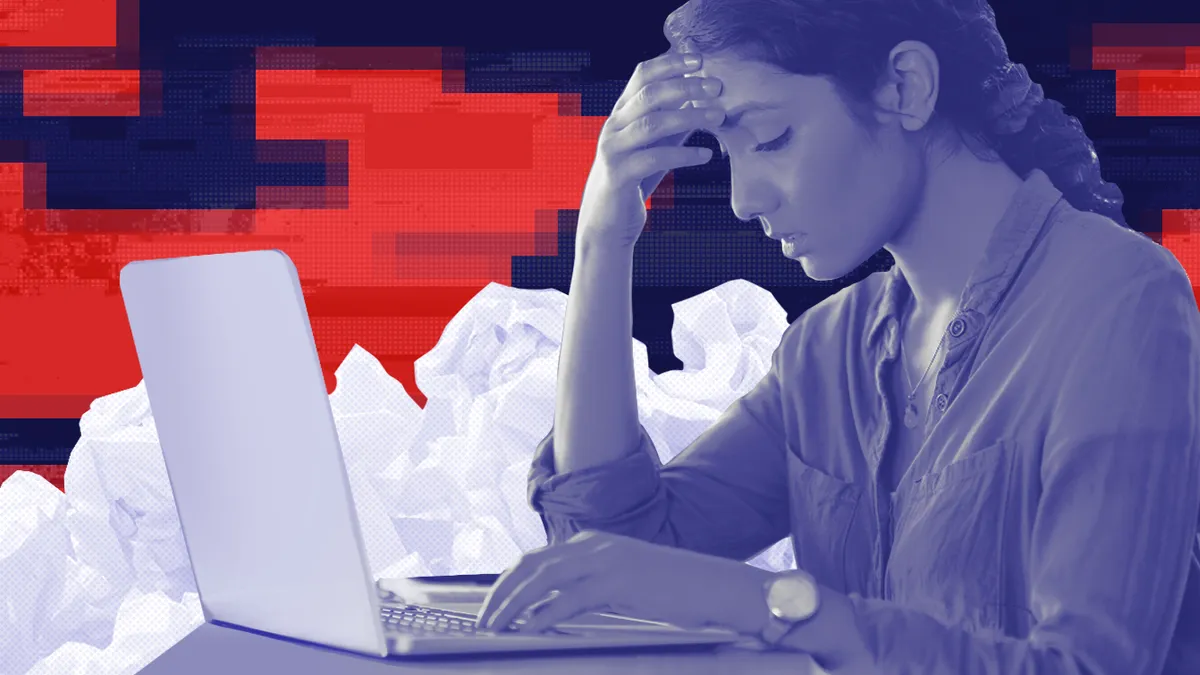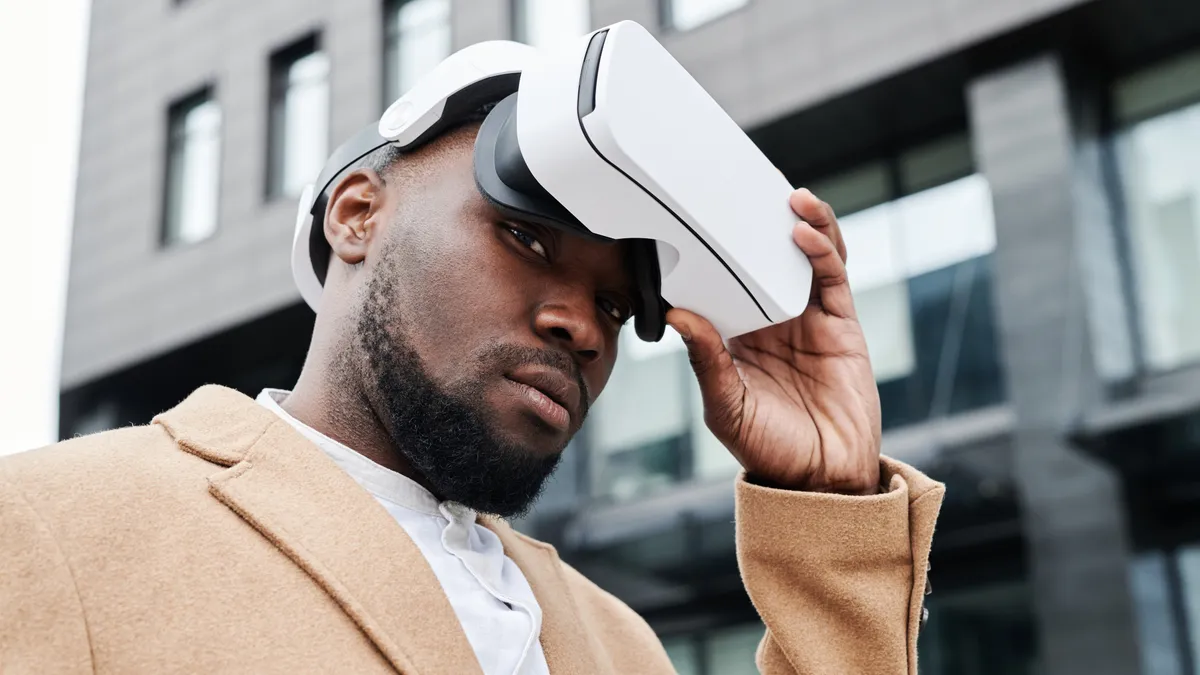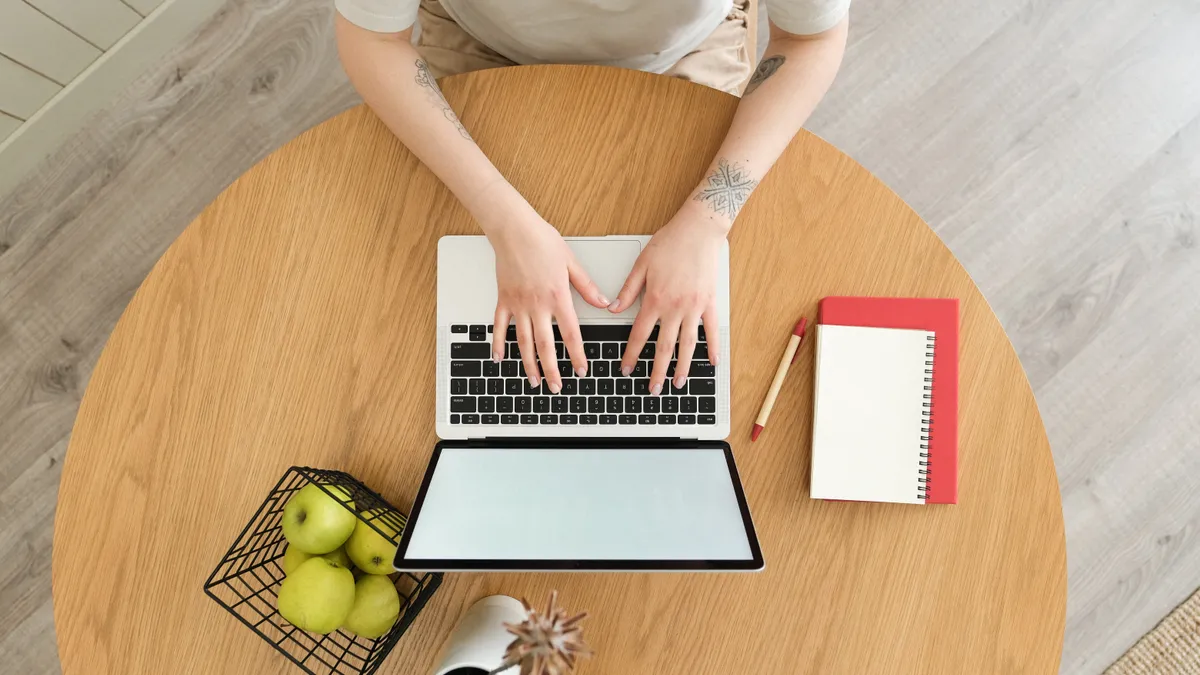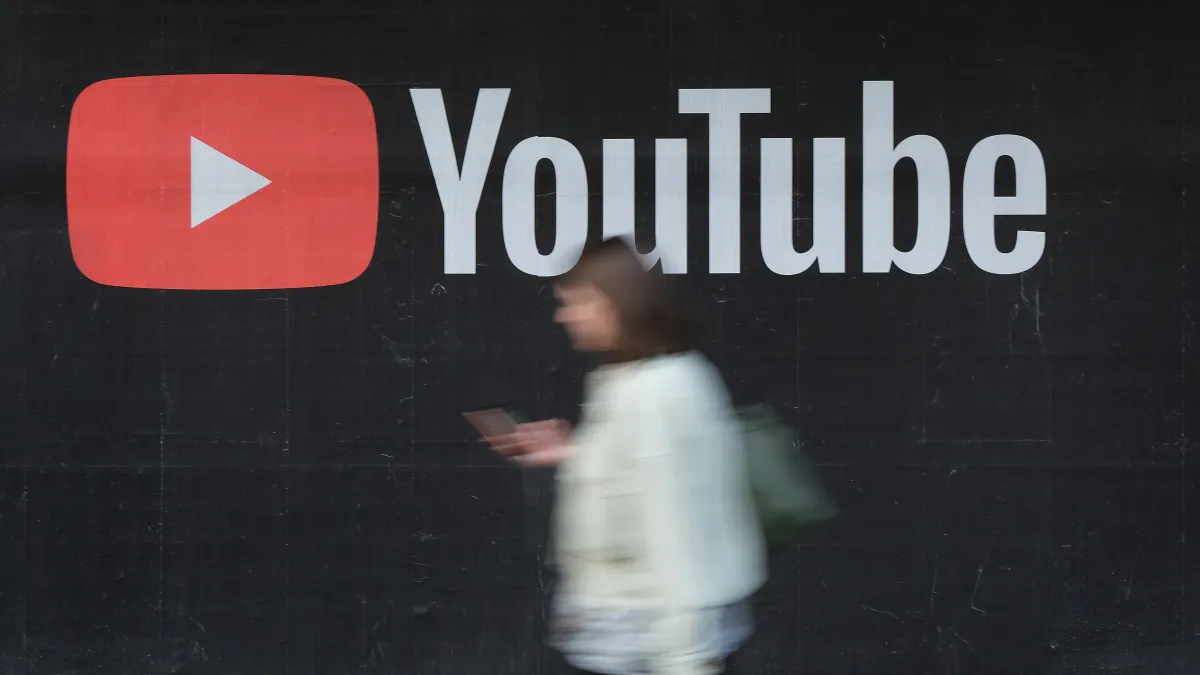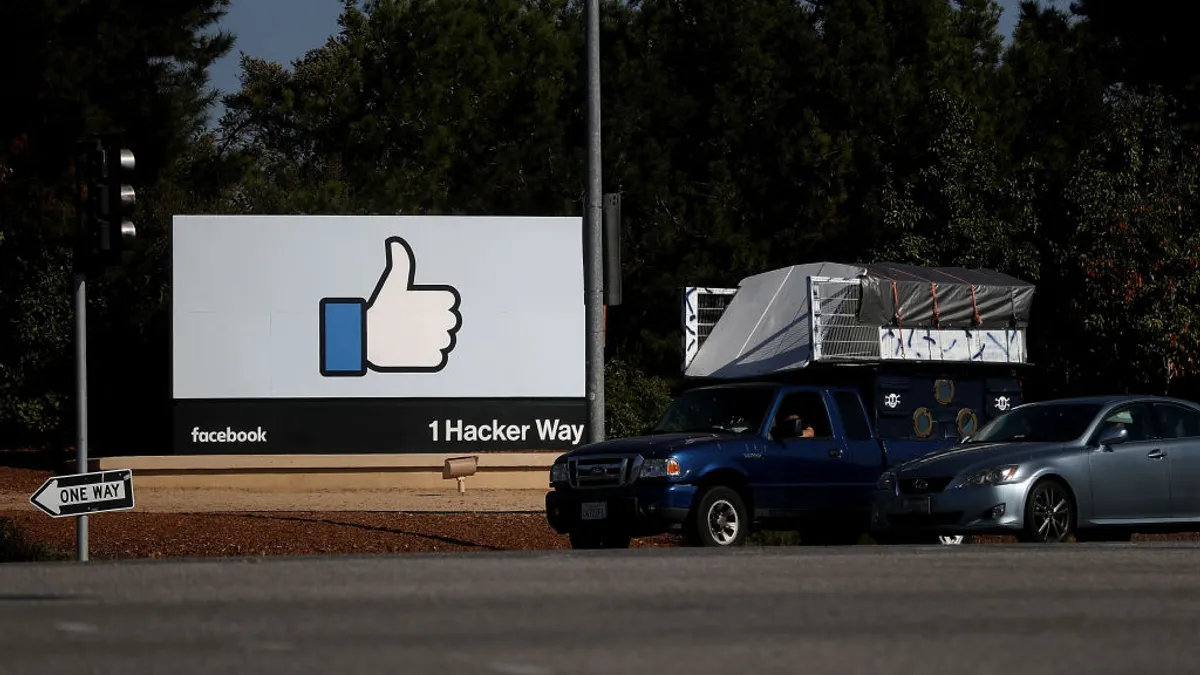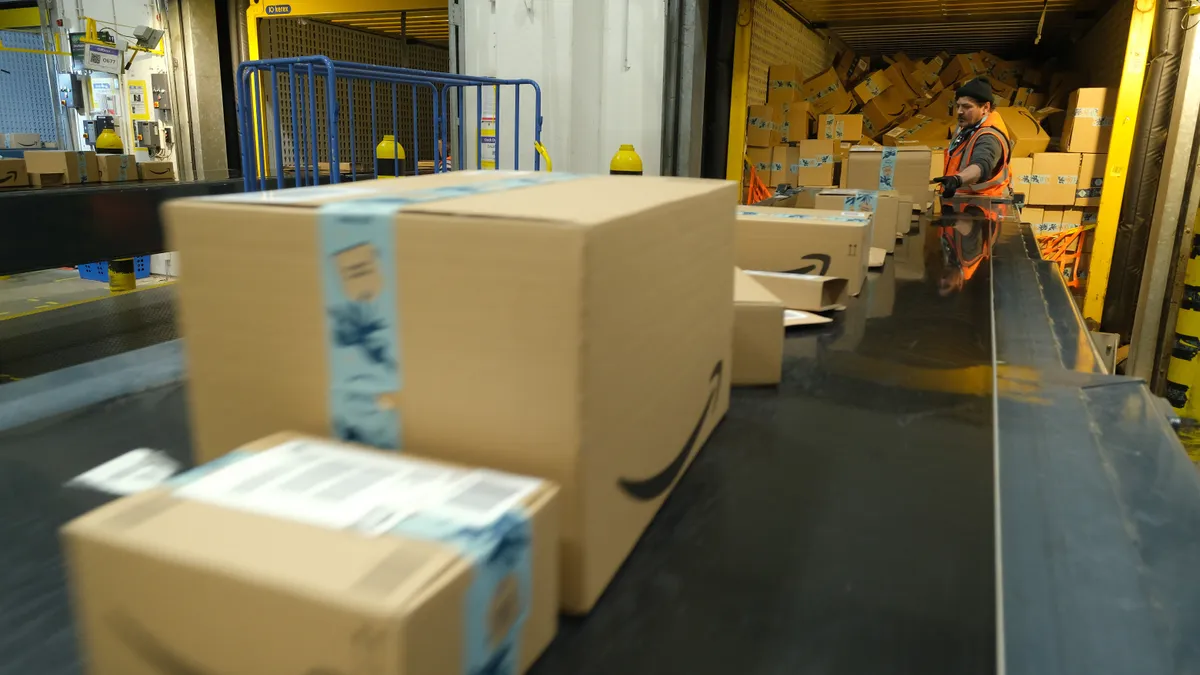Editor’s Note: Ready to de-stigmatize mental health at work? You’re in the right place. In their time at HR Dive, Caroline Colvin has found recurring pain points in the HR world, including burnout, a lack of psychological safety and the stressful uncertainty of hybrid work. Come along with them as they tackle workplace wellness and find solutions to make hybrid work a little less draining. Questions or pro-tips? Email them at [email protected].
Living in a digital-first world, it's not hard to get caught on something — social media threads, "related article" rabbit holes, celebrity gossip, regular person gossip and the Wild West of an unruly email inbox.
Recently, Resume Now exposed key sources of procrastinations of time-wasting on the clock. Top diversions included kids (14%), aimless scrolling (12%), texting friends, gaming or looking for another job (8%) and scrolling through dating apps or social media (7%). I'll lead with radical honesty and say my vice of choice is shopping for midsize retired goth kid fashion. Imagine! Marabou, leather, organza, mesh and metal, all at my fingertips. I sometimes switch it up with Taylor Swift textual analysis.
While I do have every reason to plead my case — hello, leaders of Industry Dive — this deep dive revealed that procrastination isn't necessarily the root of all work evil.
Zoë Harte, chief people officer at Upwork, said procrastination has its place. "I think sometimes it allows you to really gather your thoughts and your subconscious is doing a lot of tremendous work. So when you do settle down and focus, you're able to deliver at a different level." She also said time-wasting at work can be a "veil" for deeper problems.
"If procrastination is there because it's masking anxiety or depression or other issues, it's something we need to peel back and talk about. To open that conversation around mental health," Harte said. "We can tell when it's a more typical procrastination or when it may be covering up something that needs further examination and support."
As someone who has worked in HR for 20 years, Harte added she has never seen more collective awareness around productivity's interdependence with mental health. Touching on this industry-wide paradigm shift, Harte said, "HR can no longer be a receiver. They've got to be a driver in these initiatives."
HR professionals can be workplace wellness drivers by helping managers optimize remote workflow, with an emphasis on deliverables and clear-cut markers of success, Harte said. Jessie Wisdom, head of people science at Humu and co-founder of the management platform, agreed.
"Regardless of where you're located, you should be getting your performance evaluation based on criteria that are relevant to your role," Wisdom said. "Yes, it's true: You might procrastinate if you're at home. You might also procrastinate if you're in the office, right?"
Valuable time wasted will ultimately be reflected in the work, Wisdom said, and everything else that factors into a performance review. "This is a good challenge to anchor us back to what really matters in someone's job… It's not easy to measure productivity," she continued. "It never is." Wisdom also mentioned that she's against "monitoring people in intrusive ways."
As my colleague Ryan Golden reported, Digital.com's October 2021 report suggests that many remote-enabled workplaces monitor employees: 60% percent of respondents admitted to using monitoring software on their workers. Within that group, 81% of respondents said they saw increased productivity after installing monitoring software and 88% of respondents said they'd fired workers afterward.
When asked about motivations, employers told Digital.com they wanted to ensure employees are working full days (65%) and not using work devices for personal activities (50%). This report touched on an unacknowledged factor in the hybrid work tug-of-war: manager anxiety.
"You get caught in this uncomfortable dance between the employees saying, 'Trust me more,' and the employer saying, 'I can't see you. How can I trust you?'" said Tanya Little, chief growth officer at Vitality. Similar to Harte and Wisdom, Little said that output-focused parameters are most helpful here.
"If you give me those guardrails, I can operate with freedom inside of them. That means that I can change my timing to suit me. I can teach my children. I can look after an elderly parent, I can go for my run," she said. "Because all I have to do is meet the deliverables with quality rather than [focus on] input, which would be how much time I'd spend in front of my computer."
I'll leave you with this tidbit: In Buffer's 2021 State of Remote Work survey, only 15% of respondents said "distractions at home" were their biggest remote work challenge; 12% ranked "staying motivated" as their main concern. Meanwhile, 27% of respondents said "not being able to unplug" was their main remote work struggle.
In a world where remote workers are implicitly or explicitly guilted into longer workdays and mental health issues are at an all-time high, I'm glad I procrastinate. I'm grateful I take brain breaks to watch gorgeous internet people do atrociously goofy dances, and I take solace in daily updates on Megan Fox and Machine Gun Kelly's shenanigans. The subsequent stress relief and renewed gusto I feel for my job reminds me: I should take my own advice and reap the rewards of work-life balance.



